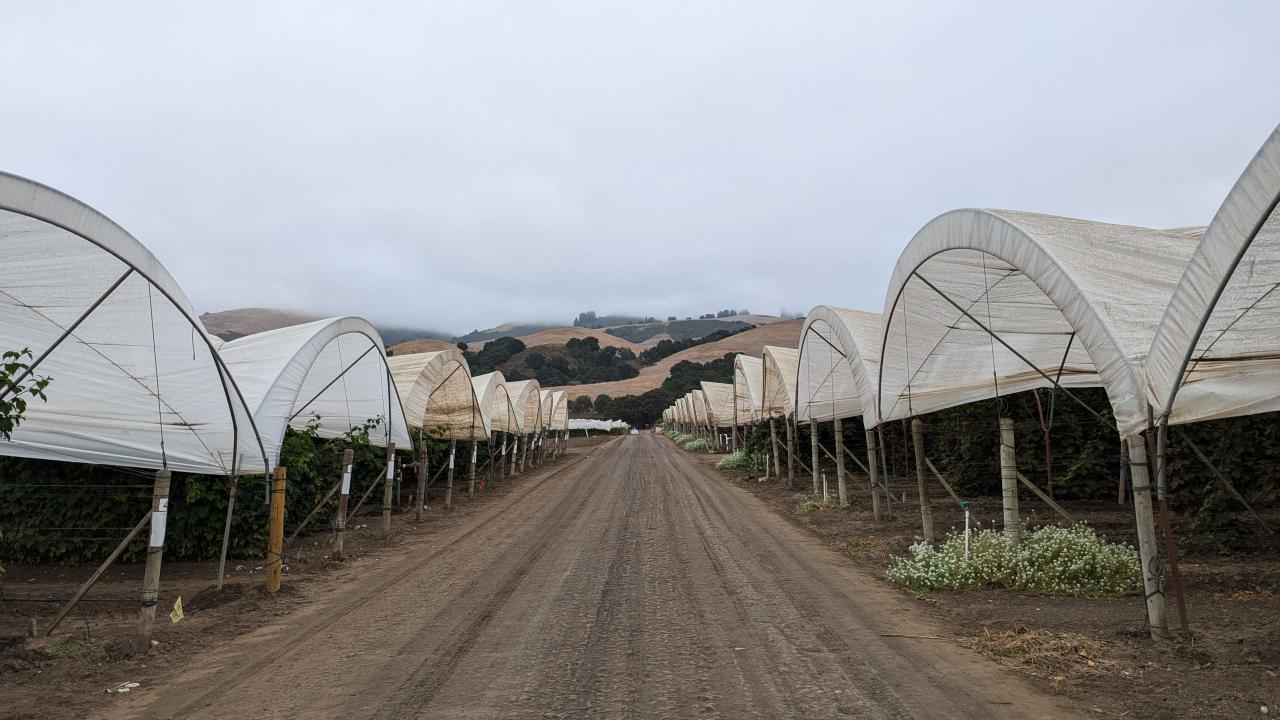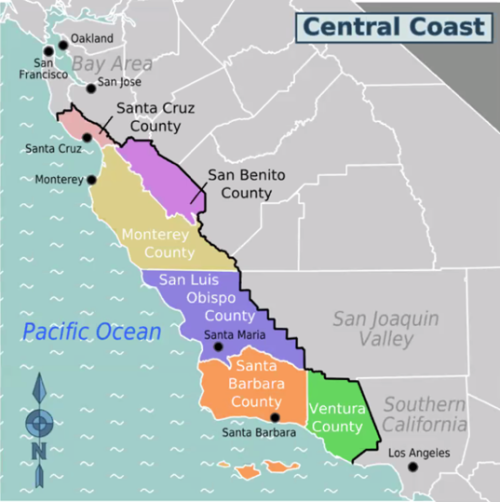
Administrative Controls to Limit High Temperatures In Polytunnels

Polytunnels (also known as hoop houses) are structures made of a metal or PVC skeleton covered with a sheet of clear plastic. They are commonly used in farming, especially on California’s Central Coast (Figure 1). Polytunnels may be hotter inside than outside due to a reduction in air flow, plastic covering, and higher humidity inside. They are typically considered an outdoor workplace by Cal/OSHA because they do not have four fixed sides.
As part three in our three-part series on heat illness prevention in polytunnels (read part one here and part two here), we review administrative controls that can be used to reduce the risk of heat illness.
Recommendations
Job Rotation and Scheduling
- Rotate farmworkers inside and outside the polytunnels throughout a shift.
- Schedule time limits for farmworkers to be inside polytunnels. Additional considerations should be made for workers not used to the heat.
- Schedule breaks and require the breaks to be outside of polytunnels.
- Change work hours to avoid the hottest part of the day.
General Heat Illness Prevention
- Monitor the temperature and humidity inside the polytunnels using wet bulb globe temperature.
- Assess working conditions frequently and apply mitigation measures if heat risks are observed.
- Use the OSHA’s Heat Safety Tool to calculate the heat index and risk level.
Training
- Provide trainings on strategies, such as water, shade, rest, to prevent heat illness.
- Provide trainings to recognize the symptoms of heat-related illness and the appropriate response if someone has symptoms.
- Regularly provide tips and reminders about heat illness prevention.
- WCAHS offers a heat illness prevention training.
Remember that heat illness is preventable. The recommendations described above can help keep workers healthy and safe while in the unique heat conditions found in polytunnels.
Resources
- View the seminar on YouTube in English or Spanish.
- Can working in polytunnels affect farmworker health and safety?
- Engineering Control Recommendations for Building Polytunnels that Stay Cooler During High Temperatures
- Kaser, I., Valdes-Berriz, M., Schilder, A. C., McGuire, M., Carpenter, C., Brokaw, E., … Solomon, G. M. (2025). Developing effective protocols to protect farmworkers from heat stress and illness while working in polytunnels. J. Agric. Saf. Health, 31(1), 15-30. https://doi.org/10.13031/jash.16111
This article provides an overview of heat illness prevention recommendations specific to polytunnels as part of our March 2024 seminar with speakers Isabella Kaser, Public Health Institute; Maripaula Valdes-Berriz, UC Division of Agriculture and Natural Resources; and Maureen McGuire, CEO of Ventura County Farm Bureau in collaboration with Roots of Change.
